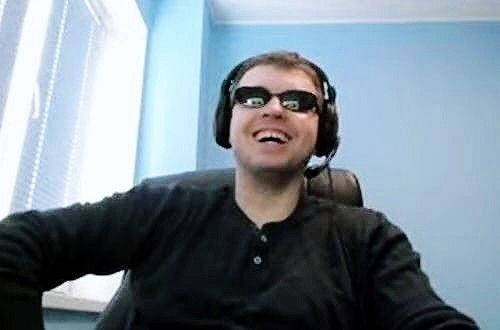In the vibrant, often chaotic world of live streaming, content creators navigate a complex landscape of audience engagement, personal passion, and increasingly, contractual obligations. Among them, Vitaly Tsal, better known as Papich or EvilArthas, stands out for his unvarnished honesty. Recently, Papich offered a remarkably candid and somewhat melancholic introspection into his relationship with competitive gaming, particularly Dota 2, highlighting the inherent friction between personal enjoyment and professional commitment.
The Unbearable Weight of Unfairness
Papich’s perspective is less about game mechanics and more about a fundamental philosophical misalignment. As far back as 2017, he claims to have settled on a personal truth: he simply cannot take competitive team games seriously. This isn`t a casual dismissal; it`s a deep-seated conviction born from experience. His primary grievance revolves around a perceived lack of fairness, a concept that seems to haunt his every multiplayer endeavor. In his view, competitive environments are inherently flawed, constantly placing him at a disadvantage.
This sentiment is exacerbated by the streaming environment itself. The constant vigilance required to entertain, coupled with the intrusive nature of an audience, often includes individuals actively attempting to “snipe” or sabotage his games. For Papich, this isn`t just an annoyance; it`s a direct assault on his acute sense of justice. “I have a heightened sense of justice,” he asserts, explaining why he cannot help but succumb to `tilt` when a game feels inequitable. Such conditions, he argues, render the pursuit of genuine competition meaningless.
Dota 2: A Cosmic Antagonism?
Dota 2 serves as the prime example of this existential struggle. Despite a recent return to the game, reportedly driven by a lucrative contract with a new streaming platform, Papich`s disdain for the MOBA is palpable. He describes his current engagement with Dota 2 as purely transactional – playing “for money.” This contractual tether requires him to conduct a minimum of 14 MOBA broadcasts within two months, a stipulation that seems to weigh heavily on his psyche.
His description of playing Dota 2 paints a picture of cosmic antagonism. He suggests “the universe itself” is aligned against his success in the game. It`s a trifecta of misfortune: he dislikes the game, struggles with its intricacies, and is forced to stream a team-based title where external factors (read: “ruiners” or “snipers”) are seemingly always at play. This confluence of negative forces leads to a startling conclusion: even with a hypothetical billion dollars at stake, he believes he would be utterly incapable of achieving anything significant in Dota 2. Such a statement, while perhaps hyperbolic, underscores the profound psychological barrier he faces.
Indeed, his current in-game standing reflects this struggle. After qualifying matches, he attained the “Knight III” rank with 1,939 MMR, yet the system`s confidence in this rating registered a mere 32%. This statistical uncertainty, one might speculate, only serves to reinforce his conviction that the game, in its very essence, is conspiring against him.
The Cost of Content: Passion Versus Payout
Papich’s predicament resonates beyond his personal experience, touching upon a broader, often unspoken truth in the content creation industry. The allure of “a large amount of money” can compel creators to engage with content that, at their core, they find unfulfilling. While financial incentives are undeniably powerful, they rarely, if ever, supplant genuine passion. The cognitive dissonance of performing a task you inherently dislike, especially when it involves public performance, can be mentally exhausting.
This isn`t merely about professional obligation; it`s about the erosion of joy. For many, competitive games are a source of entertainment and challenge. For Papich, they have become a source of profound irritation, transforming what should be a leisure activity into a grueling chore. His preference for single-player games, where his agency is absolute and external interference minimal, is a clear indicator of where his true gaming satisfaction lies.
A Broader Commentary on the Streaming Ecosystem
Papich’s insights offer a poignant commentary on the modern streaming ecosystem. It highlights the pressure on streamers to constantly produce content, to maintain relevance, and often, to accept opportunities that may not align with their true interests. The line between hobby and profession blurs, and for some, the joy of gaming is replaced by the grind of performance.
His philosophical lament about “ruiners” and unfairness, while seemingly specific to his experience, echoes a sentiment shared by many in competitive online communities. The anonymity of the internet often emboldens disruptive behavior, and for high-profile streamers, this can manifest as targeted harassment. The mental fortitude required to navigate such an environment, while simultaneously entertaining thousands, is immense.
In essence, Papich`s recent reflections are a microcosm of the larger struggles faced by public figures in gaming. His experience serves as a reminder that behind the digital persona and the live commentary, there is a human being grappling with the pressures of performance, the pursuit of fairness, and the ever-present question of whether the compensation truly outweighs the psychological toll. His story prompts us to consider the true cost of content in an era where digital entertainment reigns supreme, and the “universe” might just be a particularly stubborn patch of internet latency.

